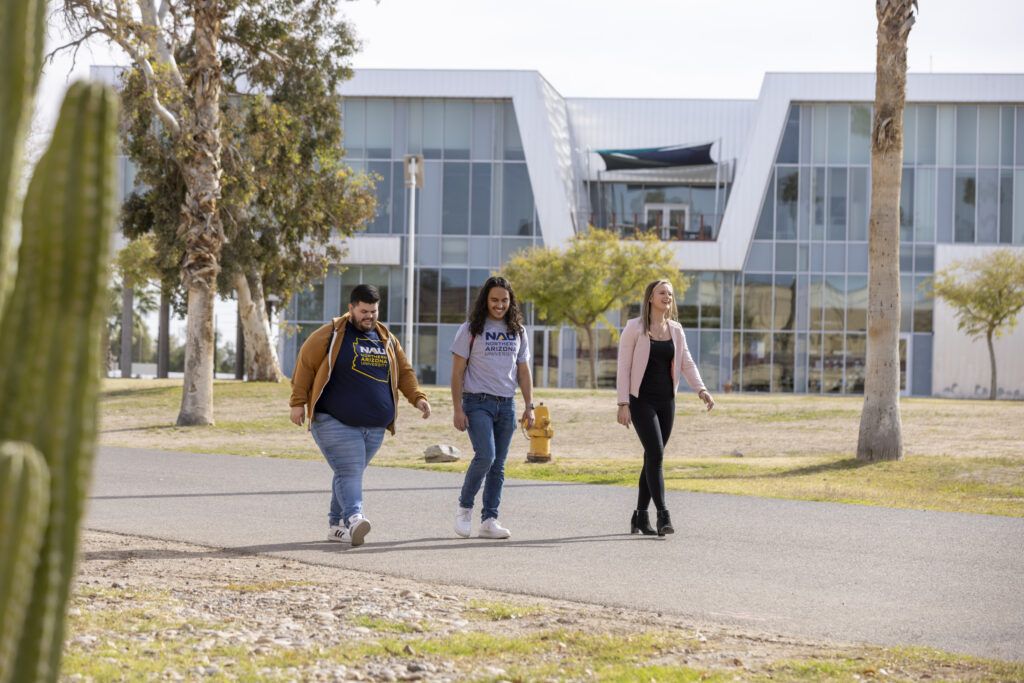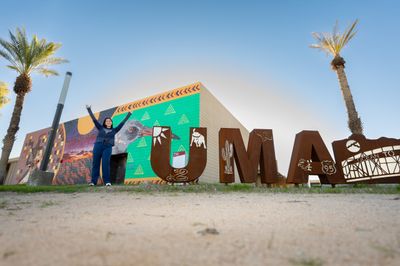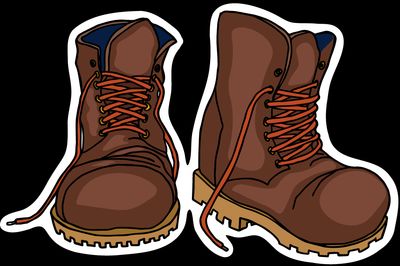NAU–Yuma Campus
Earn a reputable NAU degree right in your community. With affordable, in-person programs and dedicated faculty, NAU–Yuma helps students thrive in Yuma and beyond.
Discover what’s possible at NAU–Yuma
Located in the vibrant border region of southwestern Arizona, NAU–Yuma offers a rich, multicultural learning environment. Since 1988, the campus has provided students with high-quality, affordable education rooted in community and opportunity.
From mechanical engineering to biological sciences, Yuma has a unique set of programs, check out all of our local programs in the search tool.
Recognized as a Hispanic-Serving Institution (HSI), NAU–Yuma partners with schools in Sonora and Baja, Mexico, giving students cross-cultural experiences and global perspectives. As a branch campus of NAU since 2006, we’re proud to offer programs designed to meet the unique needs of Yuma and communities in the lower Colorado region.

Campus living
Living on campus at NAU–Yuma makes it easier to succeed and feel connected. At NAU–Yuma, students can live in DeAnza Residence Hall, a shared living community for NAU–Yuma and Arizona Western College students.
This fully furnished hall includes private bathrooms, shared kitchens, study rooms, lounges, laundry, on-site support, and even a rooftop terrace overlooking the valley. It’s more than a place to live, it’s a place to grow, connect, and thrive.
Virtual tour
Can’t make it to campus just yet? Explore NAU–Yuma from wherever you are with a self-guided virtual tour. Get a feel for the buildings, student spaces, and supportive resources that make this campus special.
Yuma student support
Students in Yuma have direct access to the local success team for support and guidance. For assistance, call 928-523-3606 or email NAUYumaSuccessCenter@nau.edu.
Please note: For questions related to enrollment, applications, or admissions processes, students should continue to contact the main admissions team. The Yuma Success Center provides supplemental support to ensure NAU–Yuma student success.
Enrollment increased 25% Fall 2023-2024
HSI designation since 2007

"My hopes and dreams beyond college is definitely to stay in my community and become a young leader and give back to those first-generation students that also need help to get to higher education. Also, I’m really passionate about following my career in justice studies and become an immigration advocate here at Yuma, Arizona."

Take the next step


Ready to apply?
Ready to start or advance your career? Apply to one of the NAU–Yuma programs today.
